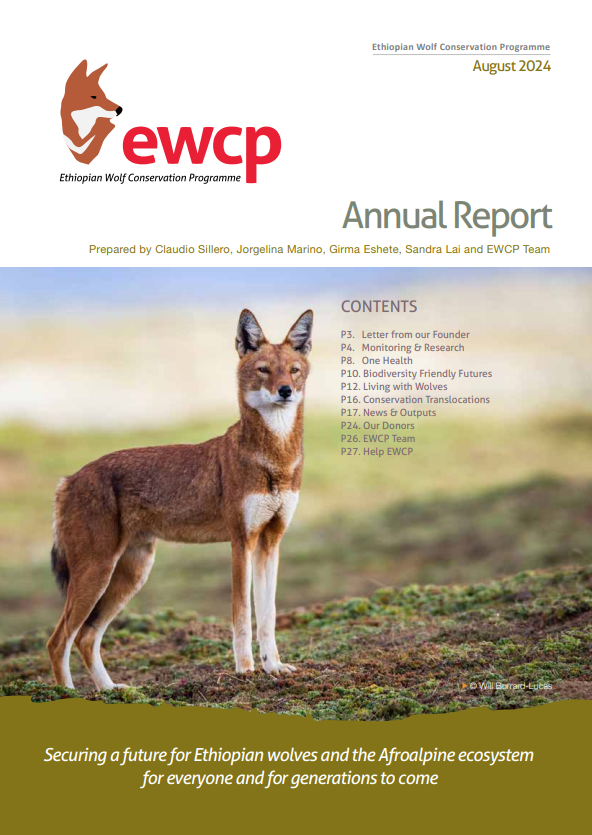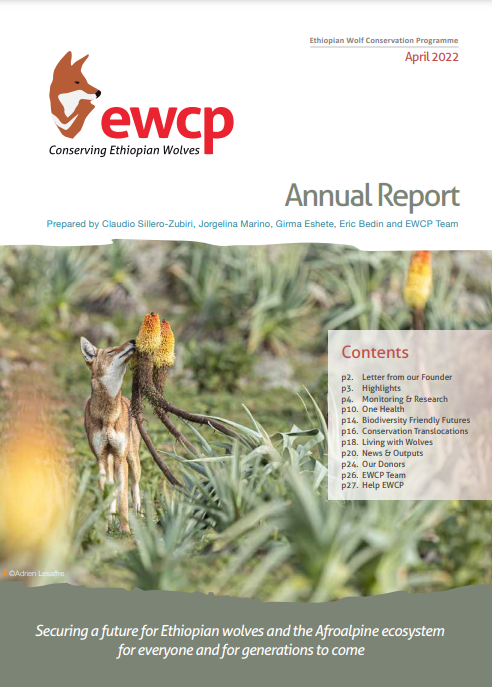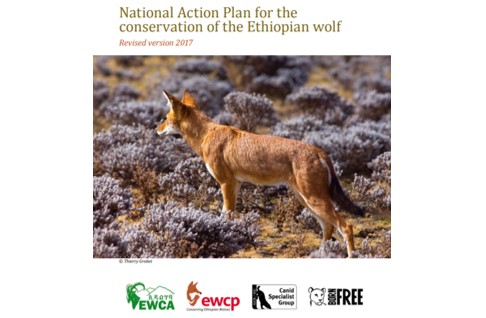


EWCP Annual Report 2024 pdf
Read the EWCP Annual Report 2024 for all of the programme's updates from April 2023 to March 2024. Highlights include: the wolves and the blooms; hybridisation threats; safeguarding wolf dens from interference; visiting the African wild dog range expansion project in SA; WildCRU inclusivity awards for EWCP staff; and much more!
 EWCP Annual Report 2023 pdf
EWCP Annual Report 2023 pdf
Read the EWCP Annual Report 2023 for all of the programme's updates from April 2022 to March 2023. Highlights Include: updates from the Tarura pack; One Health workshop in Goba; monitoring wolf dens with camera traps; and awards and news from EWCP staff!

EWCP Annual Report 2022 pdf
Read the EWCP Annual Report 2022 for all of the programme's updates from April 2021 to March 2022. Highlights include: wolf news from across their range; updates on integrated disease management; conservation translocations; and much more.
EWCP Annual Report 2020 pdf
Read the EWCP Annual Report 2020 for all of the programme's updates from April 2019 to March 2020. Highlights include: celebrating the growing team of EWCP Monitors and Wolf Ambassadors working across Ethiopia; concern about intentional fires in wolf habitat and disease; a population revival in Delanta; tragic consequences of rabies and distemper spill-overs kill at least 88 wolves this year; new field lab in the Bale Mountains will make diagnoses of disease in wolves faster and contribute to build local capacity for disease surveillance; and much more.

EWCP Annual Report 2019 pdf
Read the EWCP Annual Report 2019 for all of the programme's updates from April 2018 to March 2019. Highlights include: updates from Bale Mountains; high resolution models to recreate disease outbreaks; ground-breaking preventive oral vaccination of wolves; EWCP is growing; and much more.

National Action Plan for Ethiopian Wolf Conservation 2017 pdf
The revised Action Plan: updated timelines, actors, and work priorities. Integrated disease management plan contemplates using oral vaccines for rabies; need to enforce existing regulations of domestic dogs in/around protected areas. Monitoring, research, capacity building and habitat protection remain at the strategy's heart, and conservation translocations was upgraded to ensure their long-term survival. Edication and awareness - about the wider benefits of protecting the Alfroapline ecosystem - remain needed.